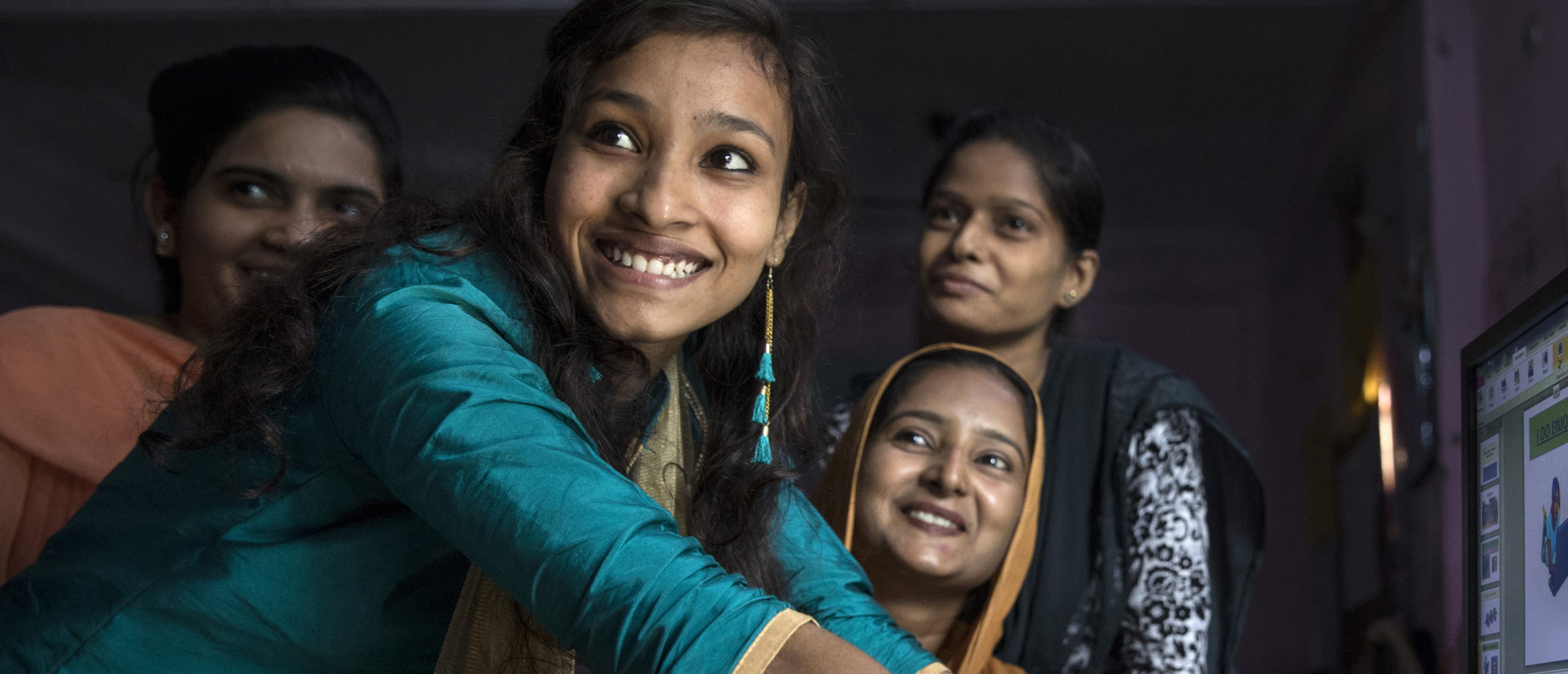
Acting Now for Change: Developing Tools to Improve Women’s Economic Empowerment
Globally, just 55 percent of women (ages 15-64) are engaged in the labor force, compared to 78 percent of men.[i] On average, women earn approximately 80 percent of what men earn.[ii] However, women represent 85 percent of all consumer purchases worldwide, controlling $20 trillion in global spending.[iii]
These statistics point to a clear disparity between women’s participation in and contribution to the global economy. With nearly one billion women poised to enter the global economy over the next decade,[iv] tapping into the potential of women is not only a social imperative but an economic one. If countries around the world begin closing the gender gap, as much as $12 trillion would be added to the global gross domestic product (GDP) by 2025.[v]
To move the needle on women’s economic empowerment, Banyan Global is implementing the Women’s Economic Empowerment and Equality Technical Assistance (WE3 TA) project, a task order under the United States Agency for International Development (USAID)-funded Advancing the Agenda of Gender Equality (ADVANTAGE) indefinite delivery, indefinite quantity (IDIQ) contract. Under the direction of the USAID Bureau for Economic Growth, Education, and Environment, Office of Gender Equality and Women’s Empowerment (E3/GenDev), Banyan Global provides advisory services to stakeholders to better analyze, design, implement, and monitor interventions addressing women’s economic empowerment and equality constraints and opportunities in support of USAID’s Gender Equality and Female Empowerment Policy, the Journey to Self-Reliance, and the Women’s Global Development and Prosperity Initiative (W-GDP).
WE3 TA isn’t just about adding WE3 considerations into future projects – in addition, the project aims to make WE3 integration an integral component of current development programming. Banyan Global’s WE3 team is currently producing a WE3 technical guide to enable USAID staff to design, procure, implement, monitor, evaluate, and learn from WE3 in programs. Once released, the six-unit guide will present practical tools, resources, and samples for integrating WE3 into the USAID program cycle. The team is also finalizing two tools related to USAID’s Digital Strategy on the gender digital divide.
In addition, WE3 TA conducts WE3 analyses of various sectors in order to strengthen donors’ and implementers’ approaches to WE3 in these fields. For example, the Banyan Global team conducted a cutting edge WE3-specific gender analysis of the solid waste management and recycling sector globally, with a specific focus on Latin America and the Caribbean. The team also conducted a WE3 assessment on integrating WE3 into labor, small and medium enterprise development, and the enabling environment in Sri Lanka, and led a training for USAID staff and implementing partners on the links between WE3 and the fisheries sector. Furthermore, WE3 TA is finishing a report with WE3-related findings and recommendations on promoting WE3 in customs and border agency services, operations, and personnel management to support women in trade.
Banyan Global’s work under WE3 TA has been invaluable to improving how USAID and its partners integrate WE3 into development programs. By presenting findings from the WE3 analyses and assessments at conferences around the globe, Banyan Global has reached technical specialists who work in those sectors every day. One specialist remarked, “Great work on the WE3 waste [and recycling report]. Very useful insight to build into current programming.”
Through WE3 TA, Banyan Global provides USAID and its partners with evidence-based research, models, and tools to advance its approach to WE3 to achieve sustainable development outcomes and encourages continuous WE3 collaboration, learning, and adaptation. By improving WE3-related USAID staff capacity, creating WE3 tools and resources, and enabling USAID/E3/GenDev to respond to mission and operating unit requests for WE3 support, Banyan Global helps to ensure that the development community is addressing WE3 in its global programming across all sectors. Thanks to WE3 TA, development practitioners have the tools they need to improve women’s economic empowerment worldwide. It’s time to put those tools into practice.
Note: All statistics referenced in this story were compiled before the COVID-19 pandemic; the pandemic’s effects on women’s labor force participation globally remain to be seen.
[i] Global Gender Gap Report 2020, World Economic Forum. Available at http://www3.weforum.org/docs/WEF_GGGR_2020.pdf.
[ii] “A Quantum Leap for Gender Equality: For a Better Future of Work for All,” International Labour Organization, 2019. Available at: https://www.ilo.org/wcmsp5/groups/public/—dgreports/—dcomm/—publ/documents/publication/wcms_674831.pdf
[iii] Sayre, Kate; and Silverstein, Michael J. “Women Want More: How to Capture Your Share of the World’s Largest, Fastest-Growing Market,” (HarperCollins, 2009) Boston Consulting Group
[iv] “A Quantum Leap for Gender Equality: For a Better Future of Work for All,” International Labour Organization, 2019. Available at: https://www.ilo.org/wcmsp5/groups/public/—dgreports/—dcomm/—publ/documents/publication/wcms_674831.pdf
[v] Woetzel, Jonathan; Madgavkar, Anu; et al; “The Power of Parity: How Advancing Women’s Equality Can Add $12 Trillion to Global Growth,” McKinsey Global Institute, September 2015. Available at: https://www.mckinsey.com/~/media/McKinsey/Featured%20Insights/Employment%20and%20Growth/How%20advancing%20womens%20equality%20can%20add%2012%20trillion%20to%20global%20grow Ith/MGI%20Power%20of%20parity_Full%20report_September%202015.ashx
